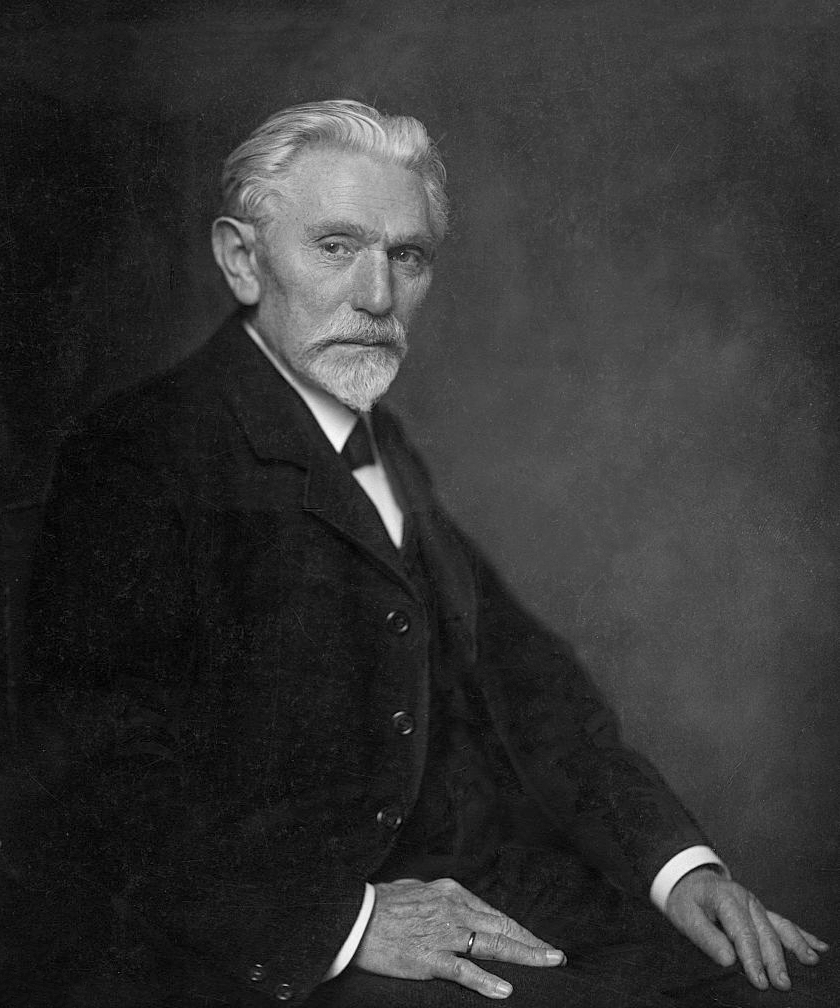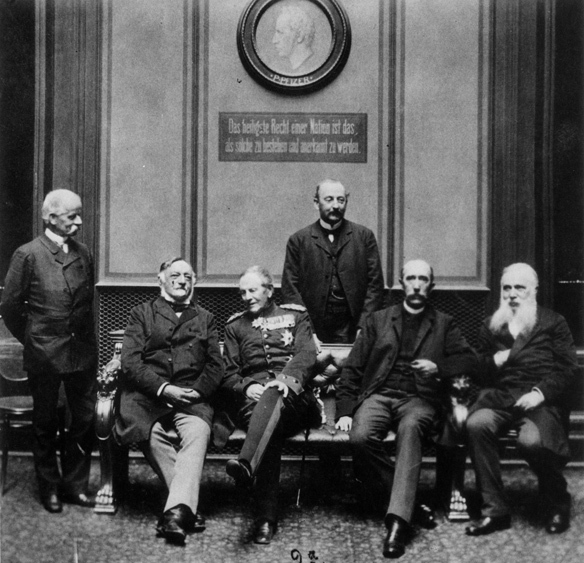|
History Of The Social Democratic Party Of Germany
The foundation of the Social Democratic Party of Germany (german: Sozialdemokratische Partei Deutschlands, SPD) can be traced back to the 1860s, and it has represented the centre-left in German politics for much of the 20th and 21st centuries. From 1891 to 1959, the SPD theoretically espoused Marxism. The SPD has been the ruling party at several points, first under Friedrich Ebert in 1918. The party was outlawed in Nazi Germany but returned to government in 1969 with Willy Brandt. Meanwhile, the East German branch of the SPD was merged with the ruling Socialist Unity Party of Germany. In the modern Federal Republic of Germany, the SPD's main rival is the CDU; as of 2022, the SPD is in government in coalition with the FDP and the Greens, with Olaf Scholz from the SPD as Chancellor. German Reich German Empire (1863–1918) The party was founded on 23 May 1863 by Ferdinand Lassalle under the name ''Allgemeiner Deutscher Arbeiterverein'' (ADAV, General German Workers' Associa ... [...More Info...] [...Related Items...] OR: [Wikipedia] [Google] [Baidu] |
August Bebel
Ferdinand August Bebel (22 February 1840 – 13 August 1913) was a German socialist politician, writer, and orator. He is best remembered as one of the founders of the Social Democratic Workers' Party of Germany (SDAP) in 1869, which in 1875 merged with the General German Workers' Association into the Socialist Workers' Party of Germany (SAPD). During the repression under the terms of the Anti-Socialist Laws, Bebel became the leading figure of the social democratic movement in Germany and from 1892 until his death served as chairman of the Social Democratic Party of Germany. Biography Early years Ferdinand August Bebel, known as August, was born on 22 February 1840, in Deutz, Germany, now a part of Cologne. He was the son of a Prussian noncommissioned officer in the Prussian infantry, initially from Ostrowo in the Province of Posen, and was born in military barracks. The father died in 1844. As a young man, Bebel apprenticed as a carpenter and joiner in Leipzig."August Be ... [...More Info...] [...Related Items...] OR: [Wikipedia] [Google] [Baidu] |
Reichstag (German Empire)
The Reichstag () of the German Empire was Germany's lower house of parliament from 1871 to 1918. Within the governmental structure of the Reich, it represented the national and democratic element alongside the federalism of the Bundesrat and the monarchic and bureaucratic element of the executive, embodied in the Reich chancellor. Together with the Bundesrat, the Reichstag had legislative power and shared in decision-making on the Reich budget. It also had certain rights of control over the executive branch and could engage the public through its debates. The emperor had little political power, and over time the position of the Reichstag strengthened with respect to the Bundesrat. Reichstag members were elected for three year terms from 1871 to 1888 and following that for five years. It had one of the most progressive electoral laws of its time: with only a few restrictions, all men 25 and older were allowed to vote, secretly and equally. The Reichstag met throughout the First Wo ... [...More Info...] [...Related Items...] OR: [Wikipedia] [Google] [Baidu] |
Bundesarchiv Bild 183-14077-0005, August Bebel
, type = Archive , seal = , seal_size = , seal_caption = , seal_alt = , logo = Bundesarchiv-Logo.svg , logo_size = , logo_caption = , logo_alt = , image = Bundesarchiv Koblenz.jpg , image_caption = The Federal Archives in Koblenz , image_alt = , formed = , preceding1 = , preceding2 = , dissolved = , superseding1 = , superseding2 = , agency_type = , jurisdiction = , status = Active , headquarters = PotsdamerStraße156075Koblenz , coordinates = , motto = , employees = , budget = million () , chief1_name = Michael Hollmann , chief1_position = President of the Federal Archives , chief2_name = Dr. Andrea Hänger , chief2_position ... [...More Info...] [...Related Items...] OR: [Wikipedia] [Google] [Baidu] |
Saxony
Saxony (german: Sachsen ; Upper Saxon: ''Saggsn''; hsb, Sakska), officially the Free State of Saxony (german: Freistaat Sachsen, links=no ; Upper Saxon: ''Freischdaad Saggsn''; hsb, Swobodny stat Sakska, links=no), is a landlocked state of Germany, bordering the states of Brandenburg, Saxony-Anhalt, Thuringia, Bavaria, as well as the countries of Poland and the Czech Republic. Its capital is Dresden, and its largest city is Leipzig. Saxony is the tenth largest of Germany's sixteen states, with an area of , and the sixth most populous, with more than 4 million inhabitants. The term Saxony has been in use for more than a millennium. It was used for the medieval Duchy of Saxony, the Electorate of Saxony of the Holy Roman Empire, the Kingdom of Saxony, and twice for a republic. The first Free State of Saxony was established in 1918 as a constituent state of the Weimar Republic. After World War II, it was under Soviet occupation before it became part of the communist East Ger ... [...More Info...] [...Related Items...] OR: [Wikipedia] [Google] [Baidu] |
German Conservative Party
The German Conservative Party (german: Deutschkonservative Partei, DkP) was a right-wing political party of the German Empire founded in 1876. It largely represented the wealthy landowning elite Prussian Junkers. The party was a response to German unification, universal and equal franchise in national elections and rapid industrialization. It changed from a diffuse party of broad ideology into an interest party in Bismarckian Germany. In the early 1870s, Otto von Bismarck formed his majority with the base in the National Liberal Party which emphasized free trade and anti-Catholicism. Bismarck broke with them in the late 1870s, by which time the German Conservative Party and the Free Conservative Party had brought together the landed Junkers in the East and the rapidly growing industrial leadership in the major cities. They now became the main base of Bismarck's support and successive Chancellors down to 1918. According to Robert M. Berdahl, this redirection illustrated "t ... [...More Info...] [...Related Items...] OR: [Wikipedia] [Google] [Baidu] |
National Liberal Party (Germany)
The National Liberal Party (german: Nationalliberale Partei, NLP) was a liberal party of the North German Confederation and the German Empire which flourished between 1867 and 1918. During the Prussian-led unification of Germany, the National Liberals became the dominant party in the Reichstag parliament. While supporting the common ideals of liberalism and nationalism, the party contained two wings which reflected the conflicting claims of its Hegelian and idealistic heritage: one which emphasized the power of the state through the ''Nationalstaat'', and the other which emphasized the civil liberties of the ''Rechtsstaat''. Although this cleavage later proved fatal for its unity, the National Liberals managed to remain the pivotal party in the decades after unification by cooperating with both the Progressives and the Free Conservatives on various issues. Origins A first national liberal parliamentary group arose among right-wing deputies of the liberal German Progress Party ... [...More Info...] [...Related Items...] OR: [Wikipedia] [Google] [Baidu] |
Halle, Saxony-Anhalt
Halle (Saale), or simply Halle (; from the 15th to the 17th century: ''Hall in Sachsen''; until the beginning of the 20th century: ''Halle an der Saale'' ; from 1965 to 1995: ''Halle/Saale'') is the largest city of the German state of Saxony-Anhalt, the fifth most populous city in the area of former East Germany after (East) Berlin, Leipzig, Dresden and Chemnitz, as well as the 31st largest city of Germany, and with around 239,000 inhabitants, it is slightly more populous than the state capital of Magdeburg. Together with Leipzig, the largest city of Saxony, Halle forms the polycentric Leipzig-Halle conurbation. Between the two cities, in Schkeuditz, lies Leipzig/Halle International Airport. The Leipzig-Halle conurbation is at the heart of the larger Central German Metropolitan Region. Halle lies in the south of Saxony-Anhalt, in the Leipzig Bay, the southernmost part of the North German Plain, on the River Saale (a tributary of the Elbe), which is the third longest river flo ... [...More Info...] [...Related Items...] OR: [Wikipedia] [Google] [Baidu] |
Otto Von Bismarck
Otto, Prince of Bismarck, Count of Bismarck-Schönhausen, Duke of Lauenburg (, ; 1 April 1815 – 30 July 1898), born Otto Eduard Leopold von Bismarck, was a conservative German statesman and diplomat. From his origins in the upper class of Junker landowners, Bismarck rose rapidly in Prussian politics, and from 1862 to 1890 he was the Minister President of Prussia, minister president and List of foreign ministers of Prussia, foreign minister of Prussia. Before his rise to the Executive (government), executive, he was the Prussian ambassador to Russian Empire, Russia and Second French Empire, France and served in both houses of the Landtag of Prussia, Prussian Parliament. He masterminded the unification of Germany in 1871 and served as the first Chancellor of Germany#Under the Emperor (1871–1918), Chancellor of the German Empire until 1890, in which capacity he dominated European affairs. He had served as the chancellor of the North German Confederation from 1867 to 1871, alon ... [...More Info...] [...Related Items...] OR: [Wikipedia] [Google] [Baidu] |
Anti-Socialist Laws
The Anti-Socialist Laws or Socialist Laws (german: Sozialistengesetze; officially , approximately "Law against the public danger of Social Democratic endeavours") were a series of acts of the parliament of the German Empire, the first of which was passed on 19 October 1878 by the Reichstag lasting until 31 March 1881 and extended four times (May 1880, May 1884, April 1886 and February 1888). The legislation gained widespread support after two failed attempts to assassinate Kaiser Wilhelm I of Germany by the radicals Max Hödel and Karl Nobiling. The laws were designed by Chancellor Otto von Bismarck with the goal of reversing the growing strength of the Social Democratic Party (SPD, named SAP at the time) which was blamed for inspiring the assassins. However, the laws caused the socialist movement to strengthen at times. This resulted in Bismarck dropping the laws and changing his coalition, eventually becoming an ally of his former enemies the Catholic Centre Party which appeal ... [...More Info...] [...Related Items...] OR: [Wikipedia] [Google] [Baidu] |
Critique Of The Gotha Program
The ''Critique of the Gotha Programme'' (german: Kritik des Gothaer Programms) is a document based on a letter by Karl Marx written in early May 1875 to the Social Democratic Workers' Party of Germany (SDAP), with whom Marx and Friedrich Engels were in close association. Offering perhaps Marx's most detailed pronouncement on programmatic matters of revolutionary strategy, the document discusses the "dictatorship of the proletariat", the period of transition from capitalism to communism, proletarian internationalism and the party of the working class. It is notable also for elucidating the principles of "To each according to his contribution" as the basis for a "lower phase" of communist society directly following the transition from capitalism and "From each according to his ability, to each according to his needs" as the basis for a future "higher phase" of communist society. In describing the lower phase, he states that "the individual receives from society exactly what he give ... [...More Info...] [...Related Items...] OR: [Wikipedia] [Google] [Baidu] |
Karl Marx
Karl Heinrich Marx (; 5 May 1818 – 14 March 1883) was a German philosopher, economist, historian, sociologist, political theorist, journalist, critic of political economy, and socialist revolutionary. His best-known titles are the 1848 pamphlet ''The Communist Manifesto'' and the four-volume (1867–1883). Marx's political and philosophical thought had enormous influence on subsequent intellectual, economic, and political history. His name has been used as an adjective, a noun, and a school of social theory. Born in Trier, Germany, Marx studied law and philosophy at the universities of Bonn and Berlin. He married German theatre critic and political activist Jenny von Westphalen in 1843. Due to his political publications, Marx became stateless and lived in exile with his wife and children in London for decades, where he continued to develop his thought in collaboration with German philosopher Friedrich Engels and publish his writings, researching in the British Mus ... [...More Info...] [...Related Items...] OR: [Wikipedia] [Google] [Baidu] |









